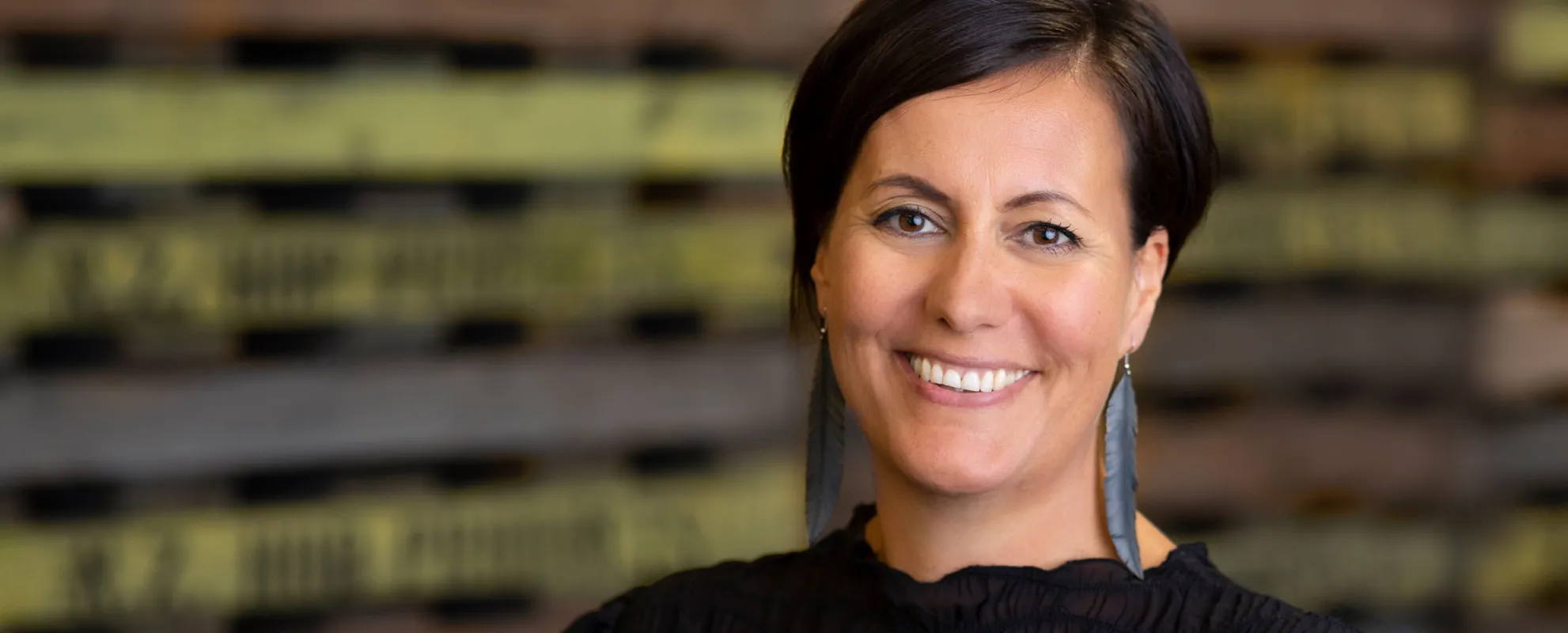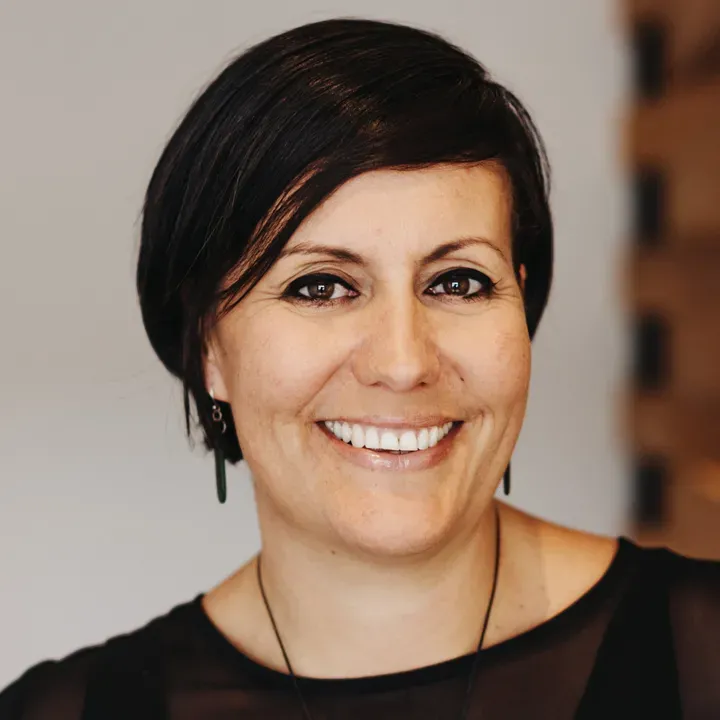Rachel Taulelei, 45, is passionate about being Māori, about values-led leadership, and about New Zealand’s position as a world-class producer of food and beverages. Her present role combines all three.
After earning a law degree from Victoria University in her hometown of Wellington, Taulelei spent several years working as a commissioner for New Zealand Trade and Enterprise, which was how she first came to live in Los Angeles. Although she loved the energy, optimism, and innovation of Southern California, family values drew her back to New Zealand where her U.S.-born daughter, Lilly, now 14, could be raised in her native country. Taulelei currently is CEO of a family-owned specialty food and beverages company that cultivates artisan products similar to those that sustained her ancestors, Māori, the indigenous people of New Zealand. In that role, Taulelei has the chance to share with the world the traditional Māori values of family, hospitality, integrity, and sustainability.
Describe your journey into the role as chief executive of Kono.
I worked in Los Angeles as a trade commissioner with a portfolio of food and beverages. When I came home, I set up a sustainable seafood company called Yellow Brick Road with about 20 fishermen who I thought were catching and harvesting seafood in responsible and ultimately sustainable ways. I supplied their products to chefs throughout New Zealand by adopting a “dock-to-dish” or “boat-to-kitchen” model, which was pretty new for New Zealand at the time. There wasn’t a lot of conversation yet around what a responsibly caught fish was. In other words, do you know who caught your fish, and how and when? The goal of the company was to improve the transparency between diner and fisherman, ultimately, but predominantly between chef and fisherman, so the chefs could feel good about the seafood they were serving. It was also to better reward the inordinately hard work that went into responsible fishing — through both storytelling and actual return.
But in 2015 you were approached by Kono.
Kono is a food and beverage company owned by Wakatū Incorporation, which is in turn collectively owned by more than 4,000 Māori families who descend from the traditional landowners of Te Tauihu, the top of New Zealand’s South Island. I hadn’t built my company for sale, but given my own whakapapa (genealogy) connections to Te Tauihu, and to Wakatū, the owning entity of Kono, it felt like this was a good place for the company to land. So, I sold my company to Kono and became its chief executive.
Your great-great-grandfather was one of the traditional landowners in Te Tauihu, which makes you part of the ownership structure of Wakatū. Was it a childhood dream of yours to work in the “family business?”
I wasn’t even aware of my whakapapa (lineage) to Te Tauihu until 2011. Prior to that I affiliated solely with another one of my other iwi (tribes) in the North Island — this is not uncommon for people of my generation. Our ancestors came to the top of the South Island in waves of great migration during the 1820s and 1830s, and my great-great-grandfather and his family at the time were among that group. What you’ll find with most indigenous peoples, including Māori, is we have endured generations of disenfranchisement brought on by land loss and dispossession. But it’s a tide that’s turning as people steadfastly reconnect with their tūrangawaewae (ancestral homelands). When Wakatū was formed in 1977, the descendants of our ancestors, the original Māori landowners, decided to pool their resources and assume responsibility and control of those lands from the Crown. The land was eventually returned to the people, but with so much red tape that for a number of years we couldn’t even walk on those lands. But over the last 40 years we have grown, advanced, and prospered. We’re now active in the industries that are the lifeblood of Te Tauihu — wine, seafood, horticulture, and food manufacturing.
The word kono refers to a basket of food that was offered to guests, a Māori tradition. In what other ways has the Māori culture influenced the company’s culture?
Our values are derived from te ao Māori, a Māori world view. They include ideas of pono, integrity, and doing what you say you will. Manaakitanga is about hospitality and bringing people into your world and caring for them. One value that’s of extraordinarily great importance to us is kaitiakitanga, which is about being a steadfast custodian and a responsible steward, not only for the place in which you live and work, but also for the people that you live and work with. We spend an inordinate amount of time thinking about how we can be the best caretakers that we can be — about being good ancestors. We recognize that we’re a commercial business, but also that we carry a great responsibility to ensure the land on which we work is left in a better condition that when we found it. And that the wellness of our people is at the heart of everything we do.
Is that a plus when it comes to attracting talent?
Most people who work for us come because they can see and feel what our value set looks like and they wish to be around it. I’m really proud of that because people can “9-to-5” it anywhere. But at the end of the day, if they come to you because they feel passionate about what you’re doing, that’s pretty special.
How are Kono products selected? In other words, why greenshell mussels? Why apple cider?
Māori come from a rich history of being farmers and fishermen, and now we have the opportunity to brand our products in a way that celebrates that story. Some aspects of our business we entered by virtue of the land left to us. A lot of the land is naturally suited to horticultural products. The involvement with aquaculture came about, in part, through our particular affinity for and relationship with water, but also because at the end of the day, arguably, aquaculture is going to become even more important as far as the ability to produce and the ability to scale up. It’s difficult to scale up a wild fishery. It’s eminently possible to scale up an aquaculture business. And if you’re looking at playing a part in feeding the world, then scaling up is important. Apple cider and fruit bars because we’re always looking for ways to best use waste product from various parts of our business. Commercial utopia for us is based on ideas of a circular economy and regenerative agriculture.
But how do you balance between scaling up and sustainable growth?
We have a strong program around land and water wellness, so we think intently about waste, soil, biodiversity, climate change, and the health of our land and water. You can scale up if you do so consciously around what your footprint might be and how you minimize it. Conscience and commerce aren’t mutually exclusive. Te Pae Tawhiti, our 500-year plan, guides us every day around how we might succeed intergenerationally. Te Pae Tawhiti is a distant horizon — it’s always moving and changing. The “plan” starts every day. You create a business environment and framework that’s bigger than you and make sure you’re moving toward positive developments generation upon generation.
You’ve said that Māori are presently risk-averse, but also that you strive to encourage people to “allow for adventure and failure.” How do you manage that dichotomy?
Māori are some of the most entrepreneurial and innovative people in the world. Our survival relied on us being innovative. Our ancestors took huge risks in order to survive. But that changed after a torrid history of wars and disenfranchisement, things that make you a little less ready to take those risks again. Equally, we have a lot of collectively owned assets, which means you can’t be as risky as you might like to be. It’s not just about you. But in saying that, you can still be blue sky in your thinking and aim high.
So how do you innovate?
For me, innovation happens everywhere, every day, any time, any place. I think it’s important to give people permission to have a voice in that space. Sometimes it will work, sometimes it won’t. But the first part of it is to allow people a voice in a really great, encouraging, respectful way.
Your most useful takeaway from your time at Stanford?
What it did for me was widen the realm of what’s possible. There’s an inherent optimism and energy in the States that’s hard to quantify, but you can feel it. But it also made me feel strong and secure in the way that we as Māori, and at Kono specifically, are moving through the world. There’s strength in knowing why you do what you do. In the huge, exciting, noisy world of billion-dollar enterprises with thousands of employees at any one given company, it’s important to know that you’re there to preserve your taonga, or treasures, for future generations. That idea that you are protecting and furthering a legacy helps you make decisions from a very strong value space. It’s both a responsibility and a privilege.
Any advice for other companies that might still be struggling to find their “why”?
In New Zealand we see businesses working double-time to understand, “What is my gift to the world, and how do I impart this in a way that is sustainable and responsible?” I think the way indigenous people undertake business resonates with nonindigenous business people. But it’s not a matter of replicating that story. It’s a matter of finding your own story. You have to approach it from a place of real authenticity. If you don’t find the story and really get to the heart of why you do what you do, then you won’t be able to go the distance with it.
Photos by Kate MacPherson and Chocolate Dog Photography


